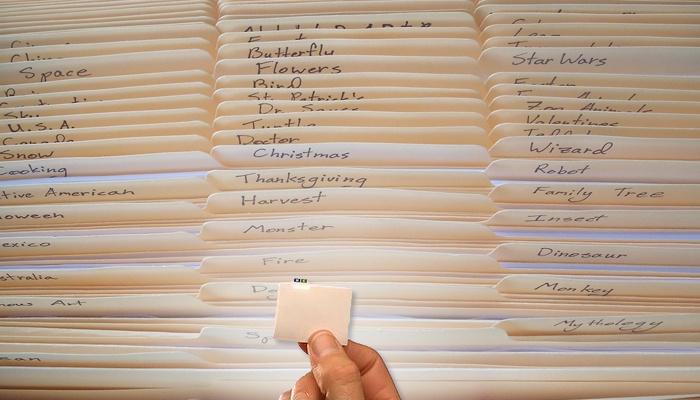The success of your gaming company’s games rests on many elements: story, visuals and graphics, memorable universes, and immersive experiences are just a few.
But what ties all of these together is your ability to deliver the best possible play experience for your customers, and that means minimizing latency.
In addition to this external goal, you also need the ability to keep advancing and be responsive to your players in order to ensure that you are delivering what drives them to keep playing.
In short, you need to be able to use your data in the most effective ways.
That is where file compression comes into play.
File compression is especially important for companies that have to back-up and archive large video files regularly.
Without file compression, the storage costs involved with backing up and saving multiple files for multiple teams can become astronomical.
File compression should also be of the highest quality as lossy compression can impact the quality of the original file.
If the right compression ratio isn’t used, such files can become unusuable.
What does file compression accomplish? Let’s find out how compressed files and a smaller file size can improve your bottom line.
File Compression Reduces the Size of Built Assets
The sheer number of elements that each game holds is incredible.
In order to accommodate each of these elements, you need an effective method of compressing your gaming data.
That includes everything from music to sounds, images, algorithms for gameplay, and large animation files.
Data compression allows you to automate this process so that overall file storage sizes are reduced, as well as display times.
File Compression Optimizes Network Bandwidth
Network bandwidth is one of the most underappreciated hidden costs in the gaming industry, and data compression is one of the most underutilized methods of minimizing it.
Data compression reduces the number of bits needed to store or transmit data, allowing your gaming company to save valuable time and reduce memory utilization, storage space, and most importantly, network bandwidth.
Data compression that allows you to closely examine the information coming back so that you can apply automated compression of specifics like floating point data based on your individual needs is even better.
Trust & Data are Placed in Your Hands Every Day. Losing Either Isn’t an Option!
Start Archiving today with a Free TrialOr help us guide you with a Demo
More Effective Data Management through File Compression
In order to effectively manage your data, you need to be able to use it to drive growth, revenue, and day-to-day decision making.
Often, data volumes of gaming companies are high, and the data tends to be unstructured.
Characters and player statistics, different releases, responses to each bug that needs fixing, and insights about how players interact with your game all need to be analyzed so that you can learn what makes a game popular and what will drive continued sales and customer loyalty and satisfaction.
An effective data compression system allows you to query this data and share insights with your team in a highly efficient way, without increased costs for data storage.
The Importance of Lossless Compression in File Compression
Lossless compression is a type of data file compression that allows the original data to be perfectly reconstructed after decompression.
This is in contrast to lossy compression, which introduces some degree of distortion into the data during compression.
Lossy compression can be noticeable when the data in the compressed file is decompressed.
Lossless compression is often used for file compression and data archiving, as it ensures that the original data is preserved.
This is important for files that contain critical information, such as executables, text files, and spreadsheets.
When it comes to video data/video files, lossless file compression reduces the file size without sacrificing quality.
This is done by identifying and removing redundant data from the video stream.
For example, if a video frame contains a large area of uniform color, the lossless compression algorithm can store this information as a single value, rather than storing the color information for each pixel in the frame.
In video games, lossless compression can be used to reduce the size of game assets, such as textures in image files, models, and audio files, without impacting the quality of your data files.
What Is the Lossy Compression Method?
Lossy compression is a type of data compression that permanently removes some of the original data in order to reduce the file size of the compressed files.
This is in contrast to lossless compression, which does not remove any data, and the same data in the computer files can be perfectly reconstructed after decompression.
Lossy compression is often used for images, audio, and video files, as it can achieve much higher compression ratios than lossless compression.
Lossy compression introduces some degree of distortion into the data when you compress files, which may be noticeable when the data is decompressed.
The amount of distortion introduced by lossy compression depends on the compression algorithm and the amount of data that is removed.
Some lossy compression algorithms are more aggressive than others, and they may introduce more distortion.
Conclusion
Data compression is a must-have for modern gaming companies.
It comes with so many advantages and cost savings, which result in better player experiences with much-reduced latency, faster writing and reading of information, faster file transfers and optimization of bandwidth, less disk space use, and more efficient use of data – all combined with decreased costs for storage hardware.
ShareArchiver’s state-of-the-art technology is tailor-made for gaming companies, offering file archiving and storage management solutions that help you meet and exceed all of your data-driven goals.
Contact us today to learn how we can help you, or to get started with a free trial.








